Vero family endured years of unfounded trafficking claims. Why did no one help – or stop it?
Editor's note: Laurence Reisman has followed this case since March 2022, facing numerous roadblocks for public records and interviews in the process. This is the final installment in a five-part series.
Could well-meaning officials take our loved ones and ensure we never find them?
Yes, and it’s a scary thought.
That’s my conclusion after researching the story of Supee Spindler, 71, and her daughter, Nisarat Jittasonthi, 49, chronicled in recent columns.
Granted, their case was unusual:
Spindler, a Thai immigrant and U.S. citizen, builds a successful therapeutic massage business in Vero Beach, operating since 2009. She brings Jittasonthi, her mentally disabled daughter, to the country in 2015 after her previous caretaker, an aunt, becomes sick in her home country.
The daughter goes to work with her mother and does various tasks, such as laundry and putting sheets on tables. She lives with her mother, who takes care of her in a new home.
Case files show mother cut off from daughter
One day in February 2021, Vero Beach police get a complaint from a woman who used to work at the spa, claiming Spindler may be taking advantage of an employee, apparently never mentioning it’s her daughter. Letters handwritten by the daughter in Thai are given to police, who learn from a translator at the Thai Development Center in Los Angeles they include claims of “abuse and possible labor trafficking,” police reports say.
Jittasonthi is taken to a Catholic Charities shelter in West Palm Beach and cared for as a victim of suspected human trafficking.
What happened in April 2022? No charges, feds mum: Court stymies Vero Beach woman's efforts to see daughter
By all accounts I could find, Spindler cooperates with investigations by the Florida Department of Children and Families and Homeland Security Investigations, called in by Vero Beach police.
A Catholic Charities caseworker keeps in touch with Spindler and occasionally lets the two speak, with a translator on the line. The mother and some of her clients send money and items through Catholic Charities to be used for Jittasonthi, according to the nonprofit’s case files provided in fall 2022 and shared by Spindler’s attorneys with TCPalm.
These caseworker-arranged mother-daughter conversations ended in July 2021.
In April 2022, I wrote about Spindler’s months-long, expensive, unsuccessful efforts to find her daughter, thinking she was still in Palm Beach County.
Catholic Charities’ case files, which shed light on Palm Beach County’s and the nonprofit’s efforts to help Jittasonthi, show why those conversations ended.
An item on the July 23, 2021, Palm Beach County Human Trafficking Task Force meeting agenda shows a doctor from Hawaii assessed Jittasonthi and opined she was lonely, her mother had abused and neglected her, and having further communication with Spindler would “negatively impact her emotional state.”
Doctor: Daughter can't understand consequences
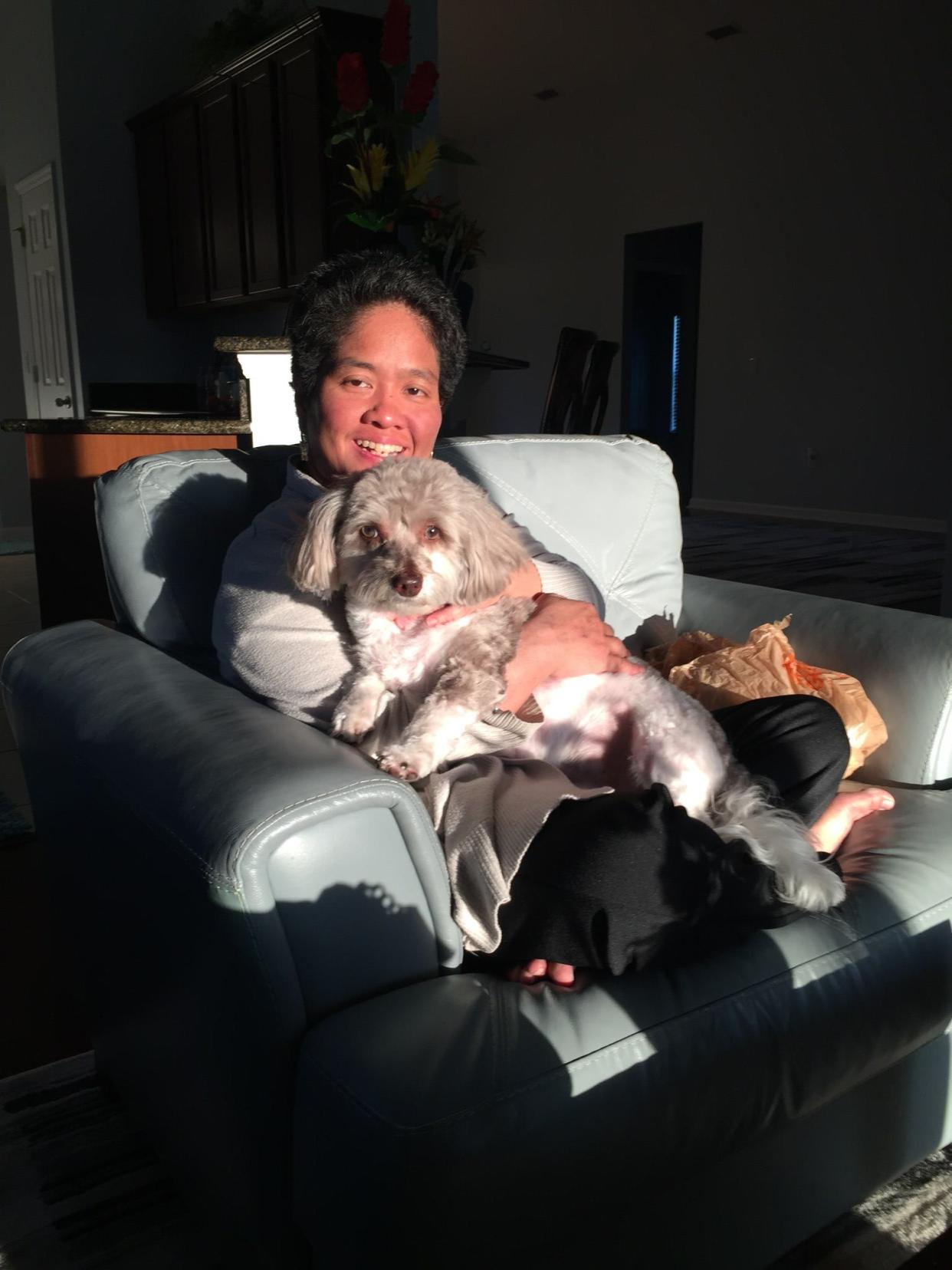
The professional opines Jittasonthi communicates in Thai at the level of 3 to 6 years of age.
“NJ can make simple choices, like what she likes,” the agenda said. “She is not able to think of consequences of her choices.”
The agenda had notes from a second medical professional:
“It is very difficult to communicate with NJ even in her native language,” but the daughter said she is “afraid of her mother but feels like she can’t say no to seeing/speaking with her. Possibly due to Thai culture.”
The professionals recommended Jittasonthi have no contact with her mother, according to the agenda.
It also documents professionals’ concern Jittasonthi have a guardian to act in her interests, even though one of them “obtained a very simple video recorded consent from NJ to speak to those involved with her care … ”
Having been completely cut off from her daughter, Spindler, through Vero Beach lawyer Julia Graves, in September 2021 sought a court order to have Jittasonthi returned.
'She doesn't have a voice': They took her daughter on unfounded claims. Then they kept her.
In the case, responses from DCF and Catholic Charities raised, what in hindsight, are serious questions.
Does daughter need guardian or can she consent?
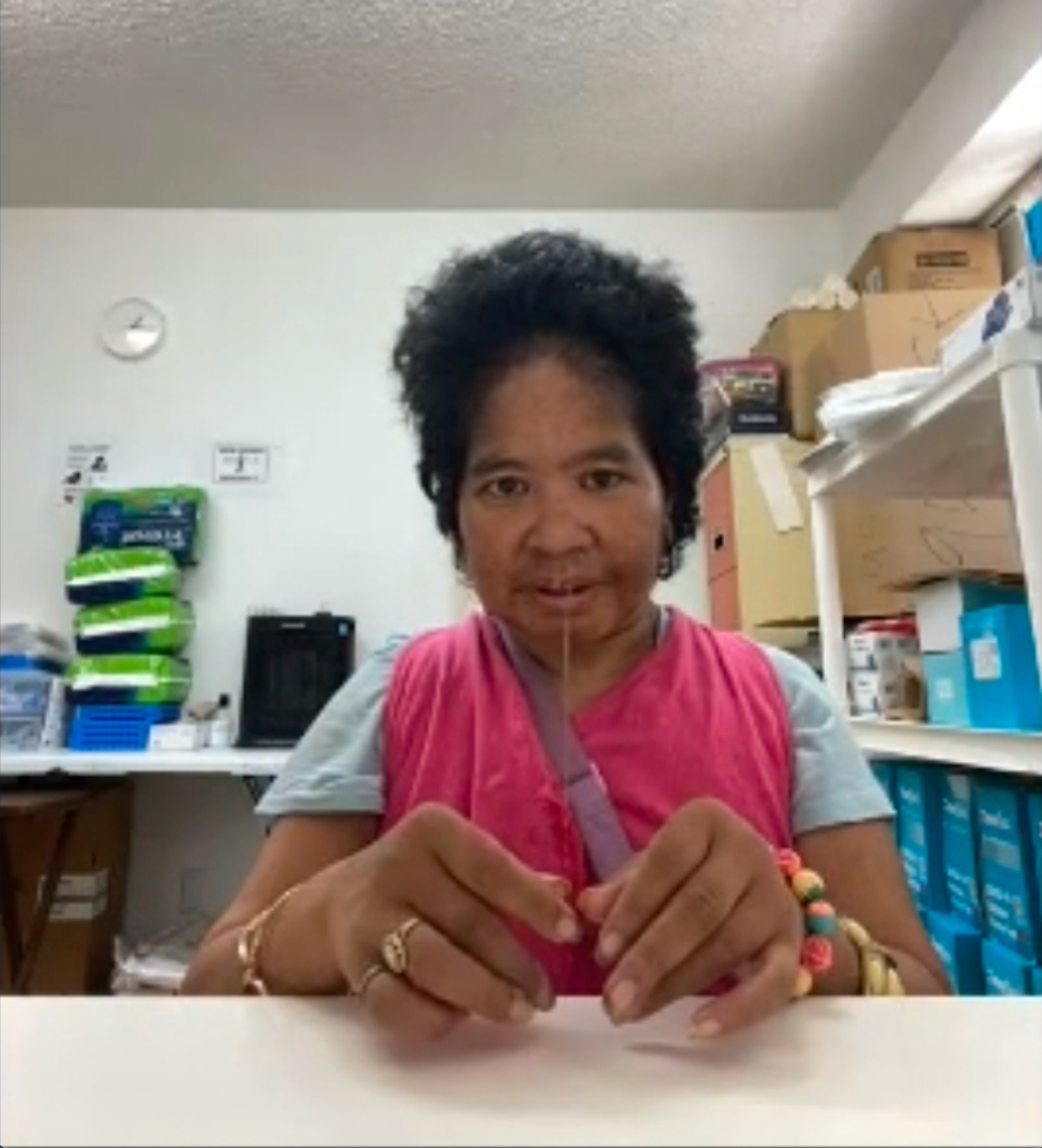
On Sept. 27, 2021, a DCF attorney wrote:
The agency did two investigations related to Jittasonthi that showed “ ‘not substantiated’ findings of abuse, neglect and self-neglect. … it was concluded no Department services nor intervention was necessary.”
A DCF assessment of the daughter completed Aug. 4, 2021, said she did have the “capacity” to make her own decisions and she decided to stay at Catholic Charities. (That conflicted with the summary of a March 28, 2021, human trafficking task force meeting, saying a DCF assessment showed “she lacks capacity to consent to services.”
Catholic Charities’ legal response Sept. 13, 2021, from then-CEO Francisco Chevere noted the daughter’s "consistent" wishes not to return to her mother and to stay with the nonprofit.
In the next paragraph, though, it suggested Circuit Judge Janet Croom, given Jittasonthi’s “acknowledged and diagnosed disabilities,” consider whether she would benefit from court-appointed counsel or a guardian ad-litem.
Then the agency requested “further direction” from the court as to Jittasonthi’s “ability to determine her own residence.”
Croom eventually dismissed the case because, since the daughter was in Palm Beach County, the judge did not have jurisdiction.
But the DCF and agency pleadings lead to a critical question raised more than a year later by one of Spindler’s attorneys, Joni Mazzola:
“How do you have it both ways?” Mazzola said. “If she can consent, you don't need a guardianship. But if she can’t (consent), you do need one and you all do not have one.”
A year later, Mazzola and co-counsel helped Spindler become guardian for her daughter, obtained case files from Catholic Charities and task force agendas to learn the following:
Like DCF, Homeland Security Investigations closed its case without filing charges, as recorded in task force staffing notes Sept. 16, 2021.
The task force, made up of social services workers and Palm Beach County sheriff’s victims advocates, diligently tried to find financial, housing and health care help for Jittasonthi — even after the DCF and HSI cases were closed.
Human trafficking task force gets options
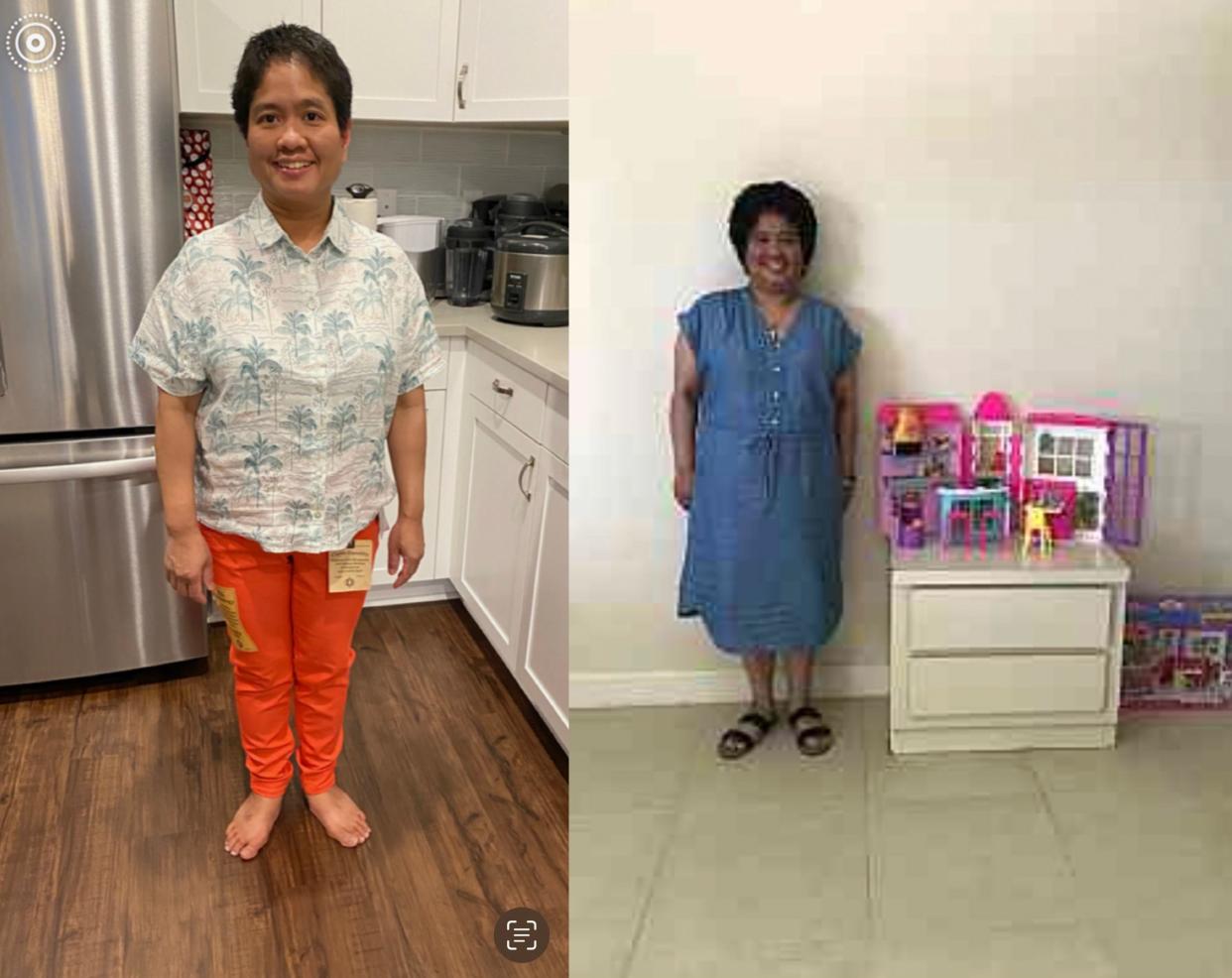
A July 24, 2021, email from a Catholic Charities caseworker cited the challenges of finding a proper home for Jittasonthi and posed some options:
“Refer her to a mental health facility where they lock her up so she wouldn’t wander, this is short term … after that they would release her to the street.”
“Send her back to Thailand … She has a sister willing to take care of her … but she is in close contact with the mother and sides with the mother.”
Refer her to the Florida Agency for Persons with Disabilities, which would not be able to help until her legal status was resolved.
“Guardianship can be done, but they would have to advise the mother of all the court information first, the mother has rights to advocate to petition for her daughters (sic) custody … the court will often side with the less harsh course of action and if she has a mother willing to take care of her and show up, they will grant it to her (we are trying to avoid that).”
The guardianship would have been the most transparent course of action, allowing human trafficking advocates to present their case while giving Spindler an opportunity to present hers.
It would have been the morally right and fairest thing to do for mother and daughter.
Instead, human trafficking advocates ― even after HSI closed its case two months later — let Jittasonthi make her own decisions while knowing she needed a guardian and continuing to treat Spindler as a trafficker.
Daughter decides to go to LA?
At least that’s what new Catholic Charities CEO Ellen Wayne told Riviera Beach police in September 2022 when Mazzola, attorney Gary Rooney and Spindler went to her facility to find Jittasonthi.
“Quite honestly, she’s (Jittasonthi's) out of state. She’s a victim of human trafficking, declared as such,” the CEO said in comments recorded on police bodycam video. She then pointed at Spindler. “That’s the trafficker.”
Jittasonthi was in a Los Angeles human trafficking shelter for more than a year. By the time Spindler’s attorneys arranged to bring her back ― after an October 2022 Zoom call in which the daughter made her intentions clear to be reunited with her mother more than 30 times — videos showed she was not in good shape, evidence supported by Spindler’s family and at least one physician.
Attorney: total system breakdown
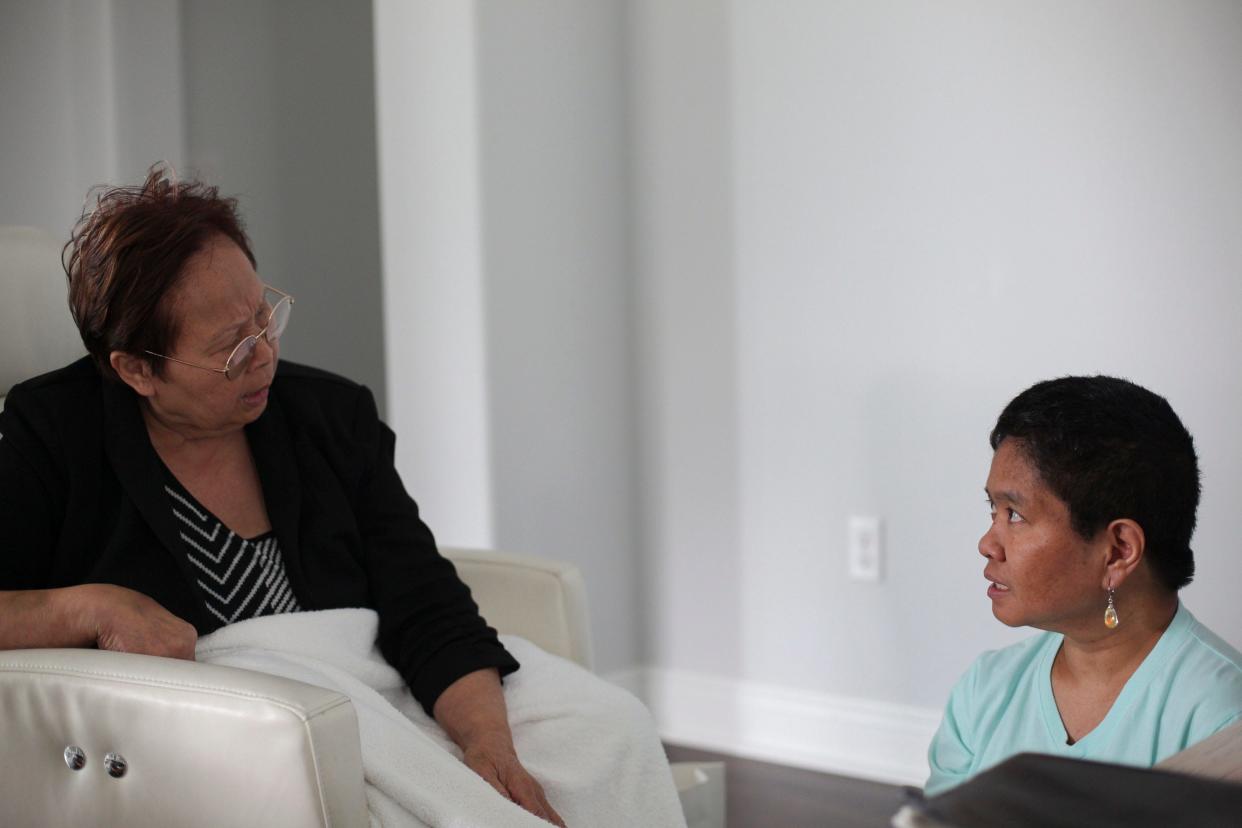
Human trafficking is a serious, major problem in the United States. Labor trafficking, including taking advantage of disabled people, is an issue, too. Agencies like Catholic Charities and the Coalition to Abolish Slavery and Human Trafficking, where Jittasonthi resided in Los Angeles, play critical roles serving real victims.
But something went terribly wrong in this case ― as attested by numerous longtime clients and local attorneys of Spindler’s and folks who knew Jittasonthi.
“This case reunified a family and saved a life ― that simple,” attorney Rooney said in an email. “It is terrifying how many people had an opportunity to help, or to prevent this from occurring.”
He talked about three groups of people:
Those who got her back.
Those who participated in “wrongfully transporting her to California and hiding her."
“Those that could have helped, but did not."
“The number of people in groups 2 and 3 (easily more than 50 people) from local agencies to elected politicians, shows there was a total breakdown,” he concluded.
Two officials I spoke with involved in Jittasonthi's case declined to comment, citing confidentiality protocol. Others did not return my calls or emails.
The good news, based on what I’ve seen from interviewing Spindler and her daughters several times over the past few months, is they appear happy and improving.
As Jittasonthi told me, with her sister translating, the other day:
“If my mom didn’t pick me up, I think I would be dead.”
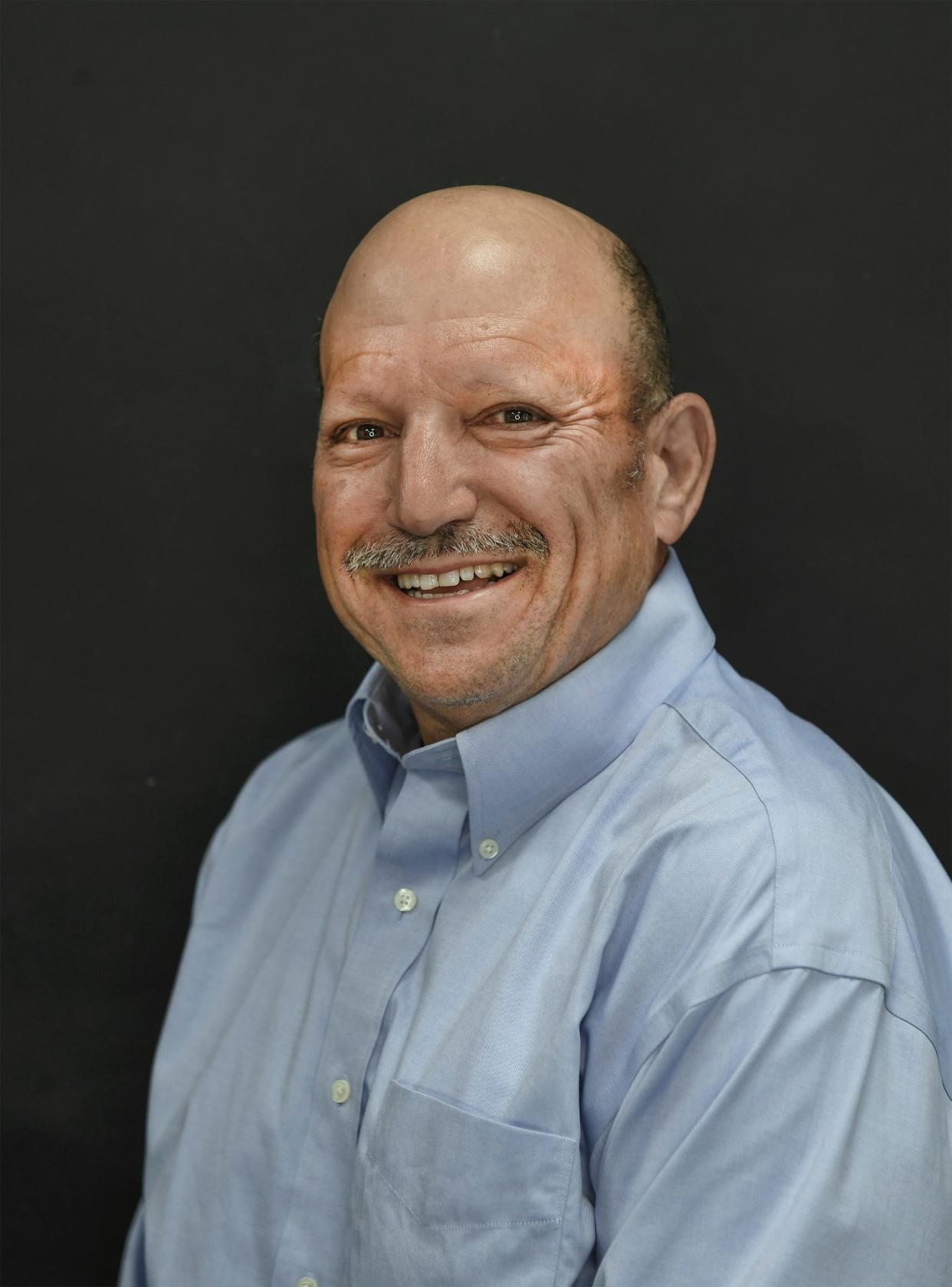
No relationship is perfect.
No system is perfect.
None of us is perfect.
So what will we do to fix things so this doesn’t happen to another family, regardless of whether they have the energy, ability and resources to never give up like Spindler?
Will anyone care?
This column reflects the opinion of Laurence Reisman. Contact him via email at larry.reisman@tcpalm.com, phone at 772-978-2223, Facebook.com/larryreisman or Twitter @LaurenceReisman.
If you are a subscriber, thank you. If not, become a subscriber to get the latest local news on the latest local news on the Treasure Coast.
This article originally appeared on Treasure Coast Newspapers: Anti-trafficking advocates failed Vero Beach women. We must do better
